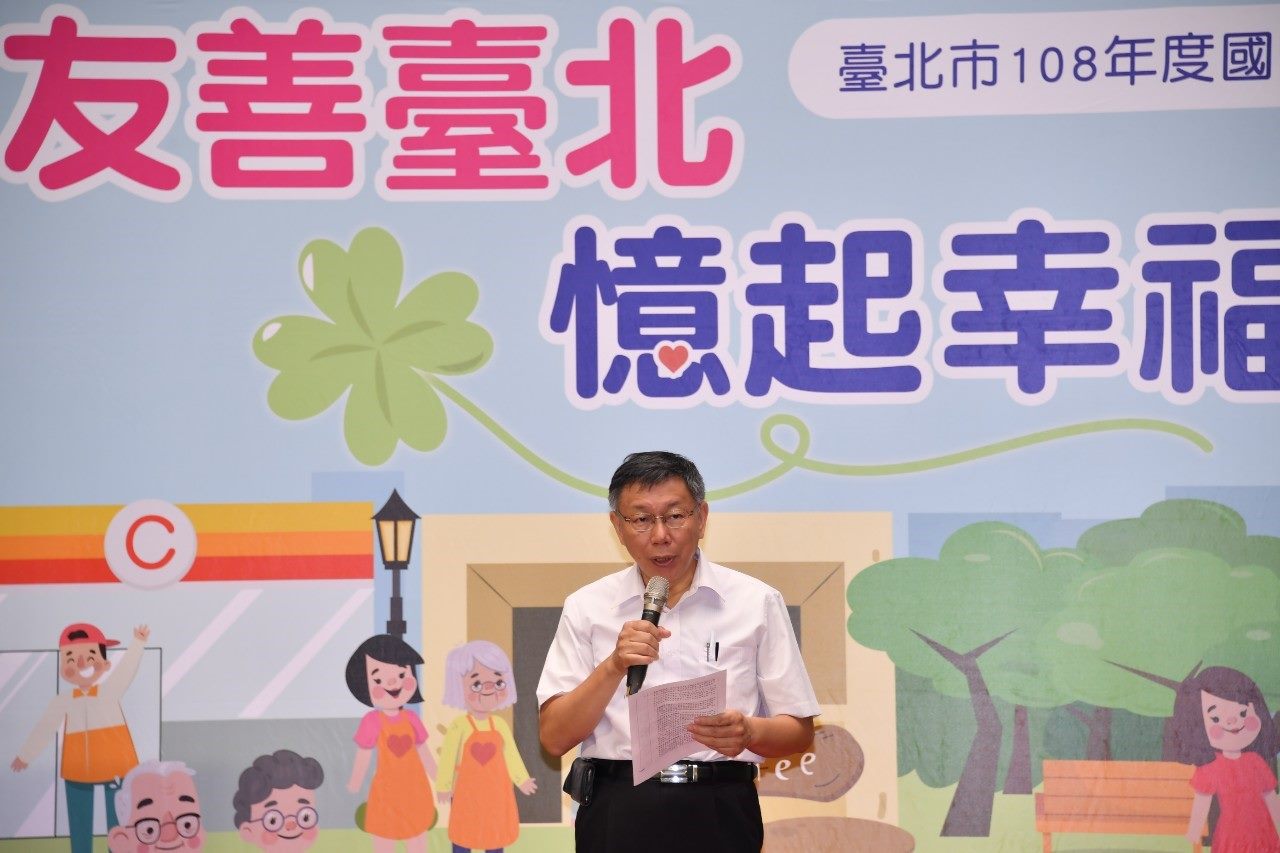Mayor Attends 2019 World Alzheimer’s Month Press Conference
 Taipei City Mayor Ko Wen-je attended the 2019 World Alzheimer’s Month press conference on September 16. During his speech, he remarked that there are approximately 38,000 people with dementia in Taipei City, and the city government’s Taipei City Dementia Action Plan aims to develop diverse healthcare services for each patient.
Taipei City Mayor Ko Wen-je attended the 2019 World Alzheimer’s Month press conference on September 16. During his speech, he remarked that there are approximately 38,000 people with dementia in Taipei City, and the city government’s Taipei City Dementia Action Plan aims to develop diverse healthcare services for each patient.
Currently, the dementia network team under the Taipei City Long-term Care Committee is responsible for integrating the city government’s internal resources; combined with 5 integrated centers for dementia care and 24 dementia community service locations, the objective is to create a healthcare system to take care of every patient by utilizing the government’s resources.
According to Mayor Ko, the number of citizens aged 65 and older in Taipei City has reached 468,000, accounting for about 17.64% of Taipei City’s population, making it the highest percentage out of the 6 major cities in Taiwan, and the number is expected to continue climbing. The city government estimates that the ratio of citizens aged 65 and older in the city will exceed 20% in 4 years. There are roughly 38,000 dementia patients in Taipei City, and the figure is likely to rise as well because aging is the biggest risk factor of dementia. This means that there is a certain ratio of dementia patients among senior citizens, and the percentage will become higher as people become older. In other words, as the population of Taipei City ages, the number of dementia patients will also increase.
Ko commented that a large dementia population in a city poses a problem, and facing the problem is the first step to dealing with the challenge. In light of this, Taipei City Government has launched the Taipei City Dementia Action Plan to develop diverse healthcare services in the city. The dementia network team under Taipei City Long-term Care Committee integrates the city government’s internal resources including the Department of Health, Department of Social Welfare, Department of Education, Police Department, Fire Department, Department of Labor, and Department of Transportation. By bringing together dementia care-related departments and offices, the government’s collective strength will be unleashed. However, for individual dementia patients, the city government will continue to engage in community development, while health centers, Taipei City Hospital, and senior care centers will be conducting screening to detect suspected dementia cases and refer them to contracted hospitals for further diagnosis. Once confirmed, the individual patient-based healthcare system will be activated. However, advanced analyses are needed because the level of healthcare service required differs from patient to patient. Therefore, the services needed by a patient will be listed and integrated for future treatment.
The mayor suggested that there are currently 5 integrated centers for dementia care and 24 dementia community service locations in Taipei City. Certainly, future individual-based dementia healthcare system will be centered on community care, but the city government is not in favor of this institutionalized healthcare approach because the overall cost is still too high. Today, he wants to convey a message that Taipei City regards dementia care as a very important administrative goal, and the city government will strive to establish an individual-based healthcare system to take care of every citizen by capitalizing on governmental resources.

![Taiwan.gov.tw [ open a new window]](/images/egov.png)
